Team Members
Associação Biopolis (Portugal)
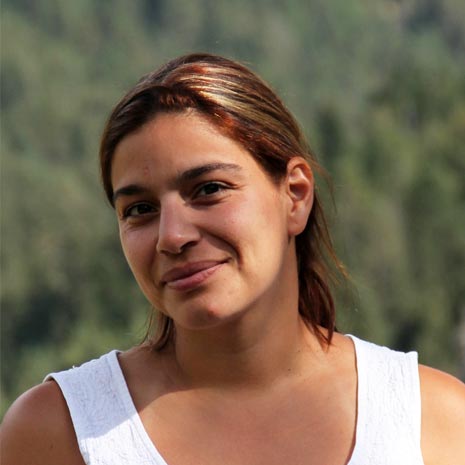
Silvia Benoliel Carvalho — Principal Investigator
Silvia is an auxiliary researcher. Her research focuses on several aspects of biogeography, biodiversity conservation and evolution. Her primary research topics include: a) understanding spatial patterns of biodiversity; b) the integration of evolutionary processes into conservation, c) enhancing conservation planning between terrestrial, freshwater and marine realms; d) optimizing trade-offs between biodiversity conservation and other sustainable development goals; e) biodiversity of arid regions; and f) the development of decision-support computer applications.
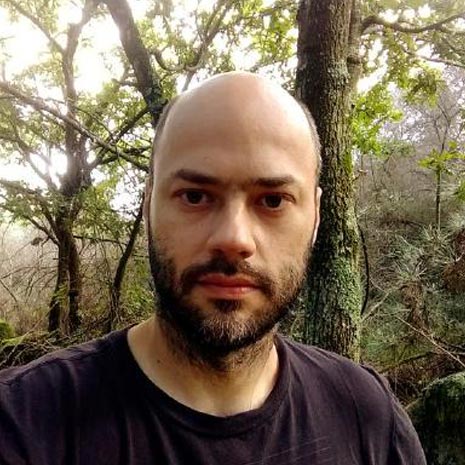
Pedro Tarroso — Researcher
Pedro is a researcher at Associação BIOPOLIS/CIBIO. His research interests span various levels of biodiversity organization, from continental to global scales, where I study the drivers of biodiversity patterns in relation to climate change. His research is also developed from local to regional scales, focusing on population connectivity and the impact of landscape features under the scope of landscape genetics. He has also developed various software tools aligned with his research interests, which are freely accessible on his personal GitHub repository (https://github.com/ptarroso).

Maria Paúl — Student
Maria has a bachelor’s degree in Biology and a master’s degree in Biodiversity, Genetics and Evolution from the Faculty of Sciences of the University of Porto (FCUP). During her MSc thesis at CIBIO-InBIO, she focused on identifying the potential mechanisms correlated with the spatial distribution of amphibian diversity in the Iberian Peninsula. Through this research she acquired experience in semi-automated approaches of data compilation, estimation of phylogenetic diversity patterns and spatial analysis. Currently, she is BIODIV PhD student. Her research will largely expand on my master’s thesis project, by incorporating intraspecific analysis into a broader scale and multidisciplinary framework, in order to understand which ecological and evolutionary processes drive diversity structure across space and how climate change might negatively impact its distribution.

Angelica Crottini — Researcher
Angelica is an evolutionary biologist and herpetologist based at CIBIO and at the Department of Biology of the University Porto. She has a strong interest on the amphibians and reptiles of Madagascar. She is working on several projects organized in the following four main research lines: 1) Taxonomy and Systematics. She combines fieldwork research with rapid molecular taxonomic identification and the comparative analyses of museum specimen to promote the cataloguing of Malagasy herpetofauna. 2) Biogeography and Evolution. She combines traditional Sanger sequencing, ancient DNA techniques, whole-transcriptome shotgun sequencing, the sequencing of Ultra-Conserved Elements and bioinformatics to obtain robust time-calibrated phylogenetic hypothesis that can be used to study the biogeographic history of the multiple adaptive radiations of Madagascar. 3) Conservation. She is involved in multiple conservation activities, having contributed to the development and implementation of the first and second (2016) Action Plan for Amphibian Conservation of Madagascar. I am the regional Co-chair of the IUCN SSC ASG Madagascar.
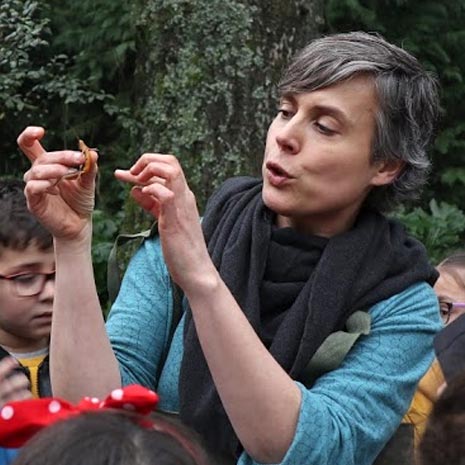
Raquel Ribeiro — Researcher
Raquel is a biologist and science communicator. Graduated from the Faculty of Sciences of the University of Porto (2002), she received her doctorate in 2011 (University of Barcelona) having focused on the issues of landscape changes and biodiversity, particularly in urban and peri-urban environments. She dedicated herself to conservation and research projects related to the ecology of Amphibians and Reptiles until 2012. Since then, she has directed her attention to the communication and dissemination of science, particularly in the area of biodiversity and its promotion, always articulating BIOPOLIS/CIBIO-InBIO, Research Center for Biodiversity and Genetic Resources, with different institutions such as the Serralves Foundation, the Natural History and Science Museum of the University of Porto or the Vila do Conde Science Center, of which it is part currently part of the Direction.

André Vicente-Liz — Student
André integrates different molecular and ecological approaches to understand the evolution and distribution of biodiversity throughout space and time. He is mainly interested in how historical factors, such as climate, geology and land-cover, shape the spatial patterns of intra-specific genetic diversity, and how this knowledge can help improve conservation strategies in the context of climate crisis. André is currently finishing his Ph.D. at CIBIO (Portugal) and ZFMK (Germany), where he has identified speciation hotspots, biogeographic corridors and climatic refugia across the Sahara-Sahel desert using vertebrates as a study system.
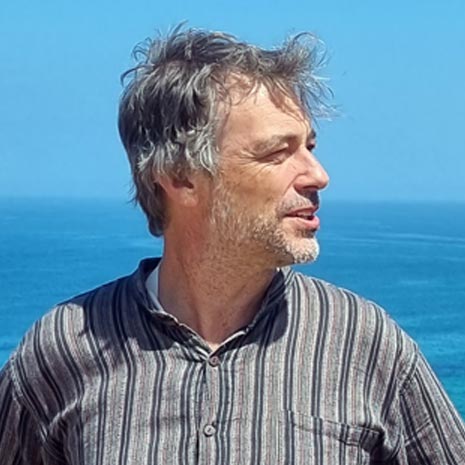
José Carlos Brito — Researcher
José is a wildlife biologist interested in the assessment of biodiversity distribution patterns and evolutionary and landscape processes in deserts and arid regions to propose optimized solutions for biodiversity conservation under global change scenarios. Main study regions include the Sahara-Sahel, Arabian Peninsula, and the Mediterranean Basin.
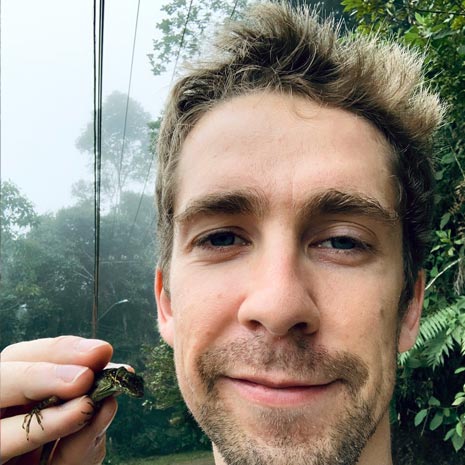
Matthew Moreira — Researcher
Matthew is an Ecologist and Evolutionary Biologist passionate about identifying general evolutionary patterns that may apply to all organisms. He holds a BSc in Biology, a MSc in Applied Ecology and a PhD in Biology and Ecology of Global Changes. His main research interests are in evolutionary ecology, macroevolution and global change, focusing on evolutionary trends, taxonomic diversity and diversity dynamics in land vertebrates. He use bioinformatics, phylogenetic comparative methods (e.g. diversification, trait evolution, trait-dependent diversification), phylogenetic inference and data visualisation applied to large-scale datasets.

Aboozar Mohammadi — Researcher
Aboozar is a researcher at Associação BIOPOLIS/CIBIO. His academic background covers a variety of disciplines, with a focus on operations research, computational optimization, and algorithm design. He has also acquired considerable knowledge in data science and machine learning, along with analytical skills. Currently, he is working in the area of conservation biology, developing computational tools to support decision-making in conservation planning within multiobjective optimization frameworks. Looking forward, his focus continues to be on modelling, designing and advancing efficient optimization algorithms through the utilization of computational tools and methodologies
Centro Interdisciplinar de Investigação Marinha e Ambiental (Portugal)

Duarte Gonçalves
Duarte is interested in biogeography, evolutionary biology and conservation, and has worked with a variety of terrestrial and aquatic taxa. His academic theses focused on analyzing evolutionary and biogeographic patterns at different spatial and time scales using GIS, ecological niche-based models and genetics, mostly of terrestrial and semi-aquatic desert herpetofauna from West Africa. After some work on global freshwater mussel phylogeography and eurasian fish biogeography, he is presently giving more attention to the biogeography of the freshwaters of North African semi-arid regions. He has accumulated hundreds of fieldwork days in expeditions to remote locations, mostly Africa, and strive for balance among exploration, conservation, learning and hypothesis-based scientific thinking.
Australian National University – Research School of Biology (Australia)
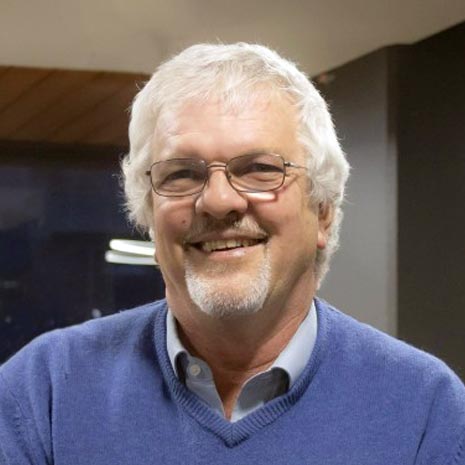
Craig Moritz — Co-principal Investigator
Craig did his undergraduate at University of Melbourne (1976-1979), where he developed his passion for evolutionary biology. For his PhD at ANU (1980-1985), he studied chromosome evolution and speciation in arid zone lizards, along the way discovering all-female reproduction in Heteronotia binoei. Then he moved across the Pacific Ocean for a postdoc at University of Michigan (1985-1988; mitochondrial DNA and evolution of parthenogenesis), before returning to a faculty position at The University of Queensland (1988-2000), including a stint as Head of School. From 2000-2012 he was Director of the Museum of Vertebrate Zoology at UC Berkeley. From mid 2012 he happily settled at EEG/RSB as a Professor and ARC Laureate Fellow. Craig is the Director of the Research School of Biology and the joint ANU-CSIRO-UC Centre for Biodiversity Analysis. His main research focuses evolutionary biogeography and conservation, with an emphasis on the following topics: biodiversity discovery and conservation, biogeography and speciation and biological responses to climate change.
City College of New York (USA)

Ana Carnaval — Researcher
Ana was born and raised in Rio de Janeiro, Brazil, where she obtained her undergraduate Biology degree and a Master’s degree in Zoology from Museu Nacional. She has a Ph.D. in Evolutionary Biology from The University of Chicago, and was an NSF-funded postdoctoral fellow in the Museum of Vertebrate Zoology at UC Berkeley. She’s a Professor at the City College of CUNY, where she has been teaching since 2010. Her lab studies spatial patterns of biodiversity and their underlying evolutionary and ecological processes, with the explicit aim of improving biodiversity prediction and conservation.
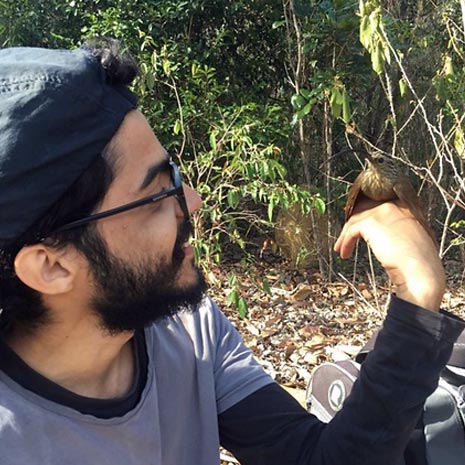
Rilquer Mascaranhas – Student
Rilquer graduated with a BS in Biology from Universidade Federal da Bahia in Salvador, Brazil. During his PhD, he is interested in investigating how ecological differences across species mediate their responses to environmental changes and affect patterns of genetic diversity. His goals are to integrate empirical genomic evaluation along with genetic simulation approaches to better understand the relative importance of neutral and ecological drivers of phylogeographic patterns in the community.
The Ohio State University (USA)
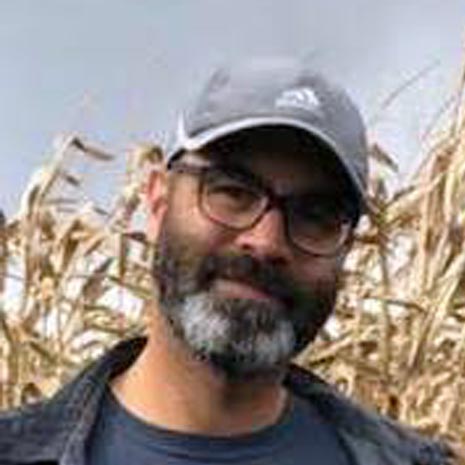
Bryan C. Carstens — Researcher
Bryan is native of Chicago, and he earned a BA in English and a BS in Zoology from Michigan State University in 1998. He earned an MS in Zoology (under the direction of Barb Lundrigan) from Michigan State University in 2001 and a Ph D at the University of Idaho (under Jack Sullivan) in 2004. He appointed as an Assistant Professor in the Department of Biological Sciences at Louisiana State University from 2007-2012. Bryan is currently a Professor in the Department of Evolution, Ecology, and Organismal Biology at The Ohio State University and the faculty head of the Tetrapod Division at the Museum of Biological Diversity. Work in the Carstens lab is funded in large part by the U.S. National Science Foundation. It is focused on the methodology used in phylogeographic and species-level phylogenetic investigations on organisms ranging from bats to salamanders to carnivorous plants. Bryan served as the Editor in Chief of Systematic Biology from 2018 – 2022 and is the founding editor of the Bulletin of the Society of Systematic Biologists.
Carleton University (Canada)
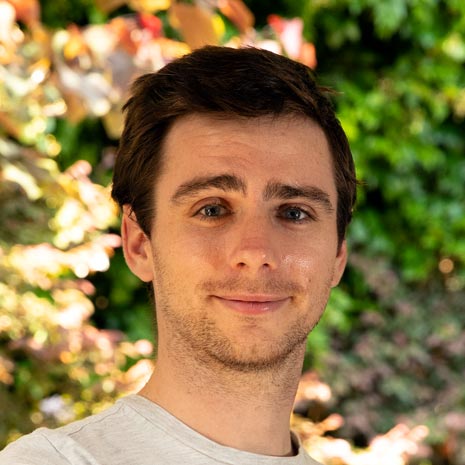
Jeffrey Hanson — Researcher
Jeffrey is a postdoctoral scientist at the Bennett Lab at Carleton University, Canada. His research focuses on solving the challenges that prevent us from creating cost-effective plans to conserve biodiversity. He also develops decision support tools to help make his research accessible, such as the prioritizr, raptr, oppr, and surveyvoi R packages. For more information, see his website: http://jeffrey-hanson.com.
Instituto de Biologia Evolutiva (CSIC-UPF) (Spain)
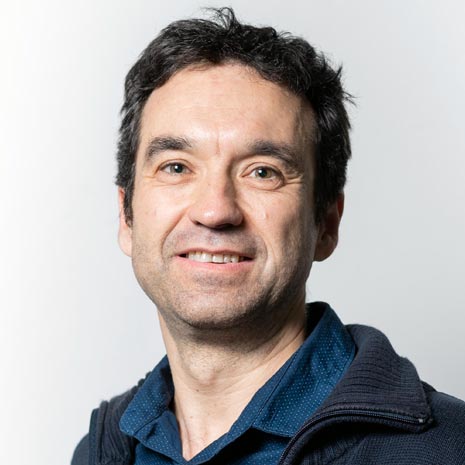
Salvador Carranza
Salvador is a Senior Researcher. His research focuses on the application of reptile and amphibian phylogenies to understand how biodiversity is generated and maintained. He is also interested in inferring the biogeographical and evolutionary patterns of the different groups studied, to revise their taxonomy and to use all this information to address conservation issues. His main research lines focus mainly on the faunas of the Mediterranean Basin and Arabia.
There is also a focus on inferring the biogeographical and evolutionary patterns of the groups studied, to revise their taxonomy and conserve them. Although the research carried out by this lab include the study of many different reptile and amphibian groups, its main interest is the faunas of the Mediterranean Basin and Arabia.
Estación Biológica de Doñana (EBD-CSIC) (Spain)

Virgilio Hermoso
Virgilio is a Senior Researcher at the Estación Biológica de Doñana (EBD-CSIC). He is an aquatic ecologist and conservation biologist, especially interested in how to best manage threats to the persistence of biodiversity under dynamic conditions and limited resources. His work involves an interdisciplinary approach, from ecology to mathematics and computing science, to understand the ecological and socio-economic problems behind the decline of biodiversity and ecosystem services and provide novel methods and tools to address them.
Kutahya Dumlupinar University (Turkey)

Muge Gidis
Muge is an Associate Professor at Kutahya Dumlupinar University. Throughout her PhD in Biology Department at Ege University, Turkey, her work focused on conservation applications of theoretical ecology, molecular biology of The Soft-shelled Nile Turtle (Trionyx triunguis). After receiving her PhD, she studied at University of California Los Angeles (UCLA) as a postdoc. Her postdoc study focused on a phylogeographic and conservation genetic analysis of endangered yellow-legged frog (Rana boylii). She is interested in molecular ecology and conservation biology of reptiles and amphibians.
